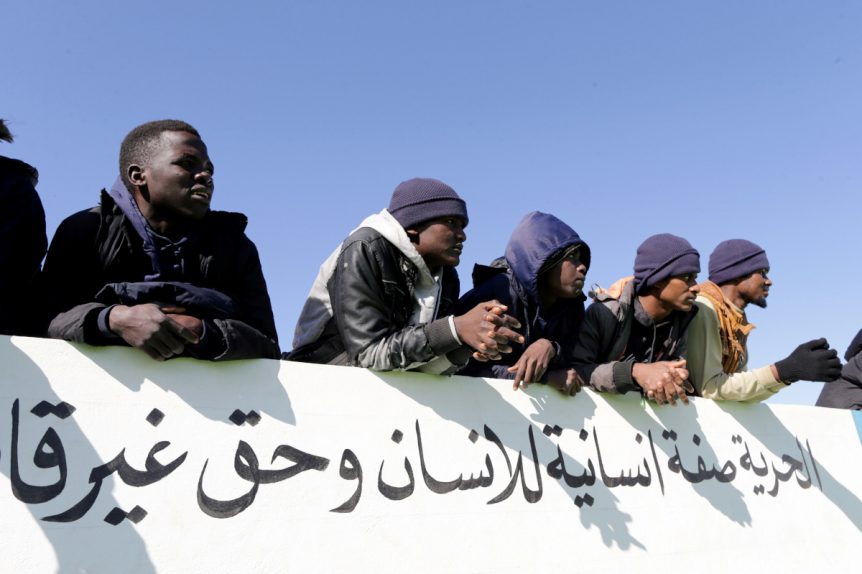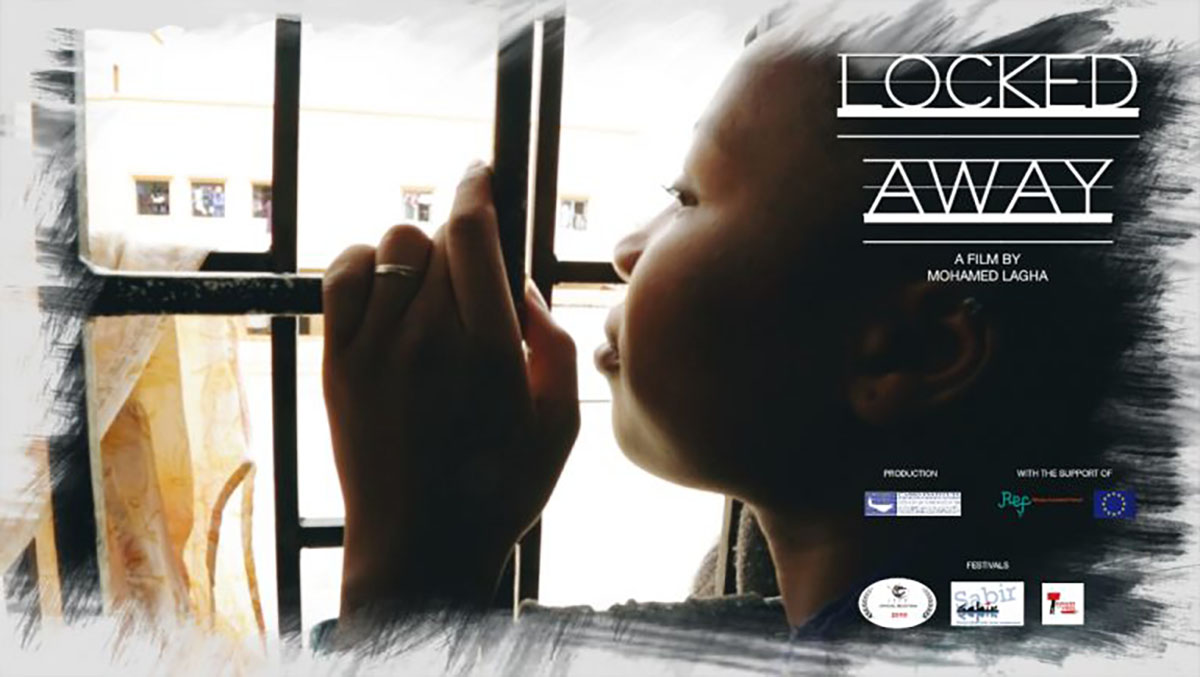On International Migrants Day, 18 December, the Cairo Institute for Human Rights Studies draws attention to the deplorable, inhumane conditions of migrants held in unlawful detention facilities all over Libya, despite the admission of United Nations Special Representative Stephanie Williams and the UN High Commission for Refugees that Libya is not a safe disembarkation country.
CIHRS again condemns the violation of the rights of migrants and asylum seekers by militias officially authorized by the Libyan executive authorities and decries European Union states’ cooperation with these paramilitaries to force migrants to return to Libya. CIHRS on 18 December 2020 is hosting the premier of “Locked Away” a documentary by Libyan filmmaker Mohammed Lagha. Featuring footage from inside the Kararim migrant and refugee detention center in Misrata, the film offers a glimpse into the appalling living conditions of migrants in Libya’s detention facilities.
At least 3,200 refugees and migrants are currently held in official detention centers in Libya, as indicated by rights reports from the Libyan Platform coalition. As of 3 December this year, at least 10,950 migrants have been forcibly returned to Libya, and at least 728 migrants drowned while attempting to leave Libya. Many migrants have also been kidnapped and tortured, and some have fallen prey to human traffickers. At the Zliten detention center for example, testimonies attest that at least 60 migrants from Bangladesh have been sold in recent months.
While the conditions in Kararim are better than other camps in which filming was impossible, the suffering portrayed in the film gives renewed impetus to the long-standing demand that the EU and its member states reconsider their migration and border control policies. EU member states must stop undermining international conventions that protect migrants and end their support for Libyan entities involved in the violation of migrants’ rights, including the Agency to Combat Illegal Migration and the Libyan Coastguard, which have been proved to be complicit in grave violations like refoulement, torture, and human trafficking, perpetrated with total impunity.
This year, the Covid-19 pandemic has exacerbated the tragedy of migrants. The lives of thousands of detained migrants are jeopardized by the pandemic, in addition to the abuse, restrictions on movement and communication, and poor nutrition, sanitary conditions, and healthcare they already endure. It has also inflamed racism against migrants among the local population. Migrants are at risk of death, sale, exploitation, and trafficking by both the Libyan authorities and their militias. There have also been reports that migrants have been left to die, starve, or drown, and search and rescue missions have been hindered.
CIHRS produced “Locked Away” as part of a project launched in July 2017 to support creative expression by Libyan youth exploring their reality and social issues. Eight short films have been produced as part of the project, addressing issues such as the conditions of migrants and internally displaced people, domestic violence, freedom of expression, and abductions in Libya. Some of these films have been shown at festivals in Tunisia, France, Belgium, and Italy.
Photo: REUTERS / Esam Omran Al-Fetori.
Share this Post


